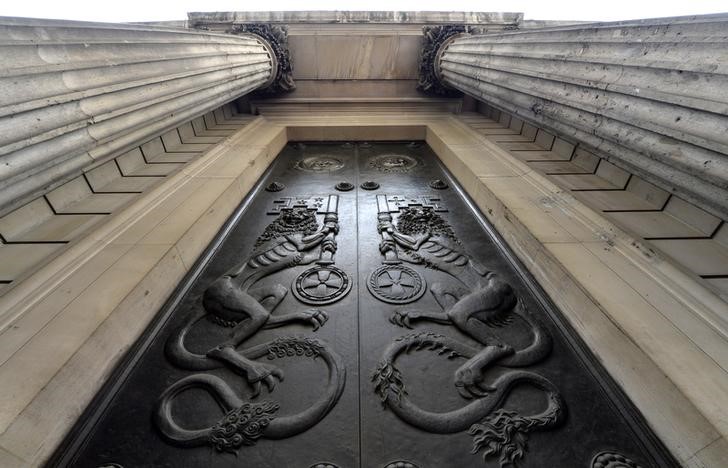By Claire Milhench
LONDON (Reuters) - British fund managers raised their equity holdings to pre-Brexit levels in April, a Reuters poll showed on Friday, with some investors betting that a Conservative win in the June 8 snap election may lead to a better deal with the European Union.
The survey of 15 UK-based wealth managers and chief investment officers was conducted between April 18 and 26, just after Prime Minister Theresa May called the election. May wants a bigger majority that she says will give her a stronger hand when negotiating the terms of the UK's Brexit deal.
UK fund managers raised their overall equity holdings to 48.9 percent, the highest level since May 2016 -- just a month before Britain narrowly voted to leave the EU in a referendum.
They also raised UK stock holdings to 24.4 percent of their global equity portfolios, up 2.3 percentage points from March.
"With the polls and the bookies having the Conservatives hot favourites to win this election in a landslide victory, there is a sense the prime minister will then be in a stronger position to negotiate a better Brexit deal," said Peter Lowman, chief investment officer of wealth manager Investment Quorum.
One argument is that May would be able to compromise more because radical Brexiteers in her party would not hold as much sway. Opponents say, however, that it would give the Conservatives a free hand to pursue a hard Brexit without single market access.
The bullish fund manager mood was reflected in a 1.8 percentage point cut in cash levels to 6.4 percent of global balanced portfolios. The bond allocation was trimmed 1.5 percentage points to 27.9 percent.
FRENCH ELECTION
Global stock markets surged to record highs in April (MIWD00000PUS), boosted by expectations of U.S. corporate tax cuts, and relief after the French presidential election's first round.
Some Reuters poll participants waited until the results of the vote were known before completing this month's survey.
With the pro-EU candidate, centrist Emmanuel Macron, going through as favourite to beat far right leader Marine Le Pen, worries about an anti-EU candidate winning have receded.
This may account for the fact that about 80 percent of poll participants who answered a special question on the euro/dollar exchange rate thought it wouldn't trade below parity in 2017.
"A lot of good news is already baked into the dollar and a lot of bad news baked into the euro," said Rob Pemberton, investment director at HFM Columbus.
Several managers also pointed out that if the political risk of the French election subsides and Macron wins, then the focus will shift to the European Central Bank, which is likely to adopt less of an easing bias towards the end of 2017.
Emerging markets remained in favour, with emerging stocks accounting for 20.2 percent of investors' global equity portfolios, effectively unchanged from last month's 20.8 percent. Emerging debt accounted for 19.2 percent of global bond portfolios in April, up from 17 percent in March.
All those who answered a question on the outlook for emerging market flows thought there were more to come.
Mouhammed Choukeir, chief investment officer at Kleinwort Hambros, noted that flows had hit the highest monthly level in two years in March. "It helped that EM equity valuations are comparatively low, an oasis in an increasingly expensive equity desert. This should continue to make EM attractive," he said.
MSCI's benchmark emerging markets stocks index gained over 11 percent in the first quarter (MSCIEF) and is set to end the month up another 2 percent, after surging towards a near-two year high after the French vote.
"The world economy is strong and this year is a leadership transition year for China so their policymakers will want to keep growth going," said Trevor Greetham, head of multi-asset at Royal London Asset Management (RLAM).
